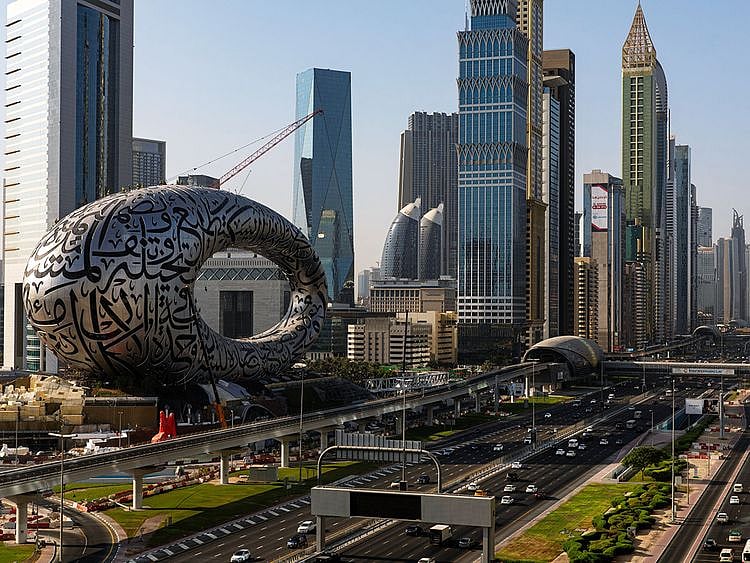UAE: How variable pricing affects what you pay for daily services in Dubai
Salik, taxis, parking, and electricity – find out when prices surge and how to save

Dubai: Variable and dynamic pricing has quietly become a key feature across several public services in Dubai. From road tolls and taxis to parking and electricity, the cost of everyday services can now change depending on the time of day and level of demand.
If you are not paying attention to how prices fluctuate throughout the day and across locations, you could end up spending more than necessary. But by understanding when and where these variable tariffs apply, you can plan better and cut your costs.
These dynamic pricing policies are introduced for a reason - to support better city planning and use pricing as a tool to manage demand and reduce congestion. For residents, this means being more mindful of when and where they use public services.
1. Salik toll gates: Higher charges during rush hours
Earlier this year, Salik, Dubai’s road toll operator, introduced a variable pricing system across all toll gates. The new rates apply every day of the year except during Ramadan and are designed to manage traffic flow during busy periods.
Standard pricing:
Peak hours (6am–10am and 4pm–8pm): Dh6 per crossing
Off-peak hours (10am–4pm and 8pm–1am): Dh4 per crossing
Late night (1am–6am): No charge
Sundays (excluding public holidays and events): Dh4 across all time slots, excluding late night
During Ramadan:
Peak hours (9am–5pm): Dh6
Off-peak hours (7am–9am and 5pm–2am): Dh4
Late night (2am–7am): No charge
The toll remains unchanged when passing through Al Safa or Al Mamzar (North and South) gates in one direction within a one-hour period, users are charged only once. According to the RTA, the goal of this pricing model is to spread out vehicle movement and ease congestion during peak travel times.
2. Taxis: Expect higher fares during busy periods
Dubai’s taxi fares also follow a variable pricing model, especially when booked through apps or from busy locations. The base fare, which appears on the metre at the start of a trip, can vary based on the time of day, booking method, and pick-up location.
Here's how base fares typically break down:
RTA’s S’hail and Careem apps: Dh12
Street hailing (day): Dh5
Street hailing (night): Dh5.50
Airport taxi: Dh25
Ladies’ taxi: Dh6 (Dh7 after 10pm)
Hatta taxi (7-seater): Dh25
Taxis for People of Determination: Variable depending on location and time
Special events or high-demand areas: Starting fare may increase to Dh20
Flag-down rates are adjusted during peak hours, such as early mornings, evenings, and large-scale events like New Year’s Eve or exhibitions, especially when using Hala Taxi (through Careem). Surcharges also apply when booking from busy locations like Global Village, Expo City, and airports.
Also Read
Now, book Dubai taxi on Whatsapp. Here are the steps to follow.UAE: Can I request a taxi driver to avoid Salik toll gates in Dubai?3. Public parking: Higher rates in high-demand areas and peak hours
Dubai’s public parking fees were revised in April to follow a variable tariff system, where the cost now depends on both the time of day and the type of parking zone. The new structure means motorists will pay more during peak hours, particularly in high-demand areas, while off-peak rates remain unchanged.
Drivers who regularly park in busy districts such as Downtown Dubai, Business Bay, Deira, and Jumeirah will notice more premium parking spaces, these are typically located close to public transport hubs, commercial centres, and popular destinations for ease of access. These premium zones are priced higher during peak periods.
Peak and off-peak parking hours
Peak hours: 8am 10am and 4pm to 8pm
Off-peak hours: 10am to 4pm and 8pm to 10pm
Parking tariffs during off-peak hours will remain unchanged, following the existing pricing structure. Public parking remains free on Sundays and public holidays, and Dubai’s paid parking hours operate from 8am to 10pm with no charges outside these times.
The updated tariff structure introduces different pricing based on the type of parking and the time of day:
Premium Parking: Dh6 per hour (during peak hours)
Standard Parking: Dh4 per hour (during peak hours)
Off-Peak Parking: No extra cost
4. Dewa electricity tariffs: Peak load hours drive up energy costs
Electricity use in Dubai is also subject to time-based pricing, especially for high-use customers such as businesses and large households. The Dubai Electricity and Water Authority (Dewa) highlights 12pm to 6pm during summer as the city’s peak-load period.
This is when demand is highest, often due to air conditioning and appliance use, which places more strain on the power grid. Dewa encourages customers to shift usage of energy-heavy appliances like washing machines, dishwashers, or water heaters to early mornings or late evenings, outside the 12 to 6pm window.
Reducing consumption during peak hours not only lowers individual electricity bills but also supports energy efficiency and reduces carbon emissions, since less fuel is burned to generate electricity.
Sign up for the Daily Briefing
Get the latest news and updates straight to your inbox
Network Links
GN StoreDownload our app
© Al Nisr Publishing LLC 2026. All rights reserved.